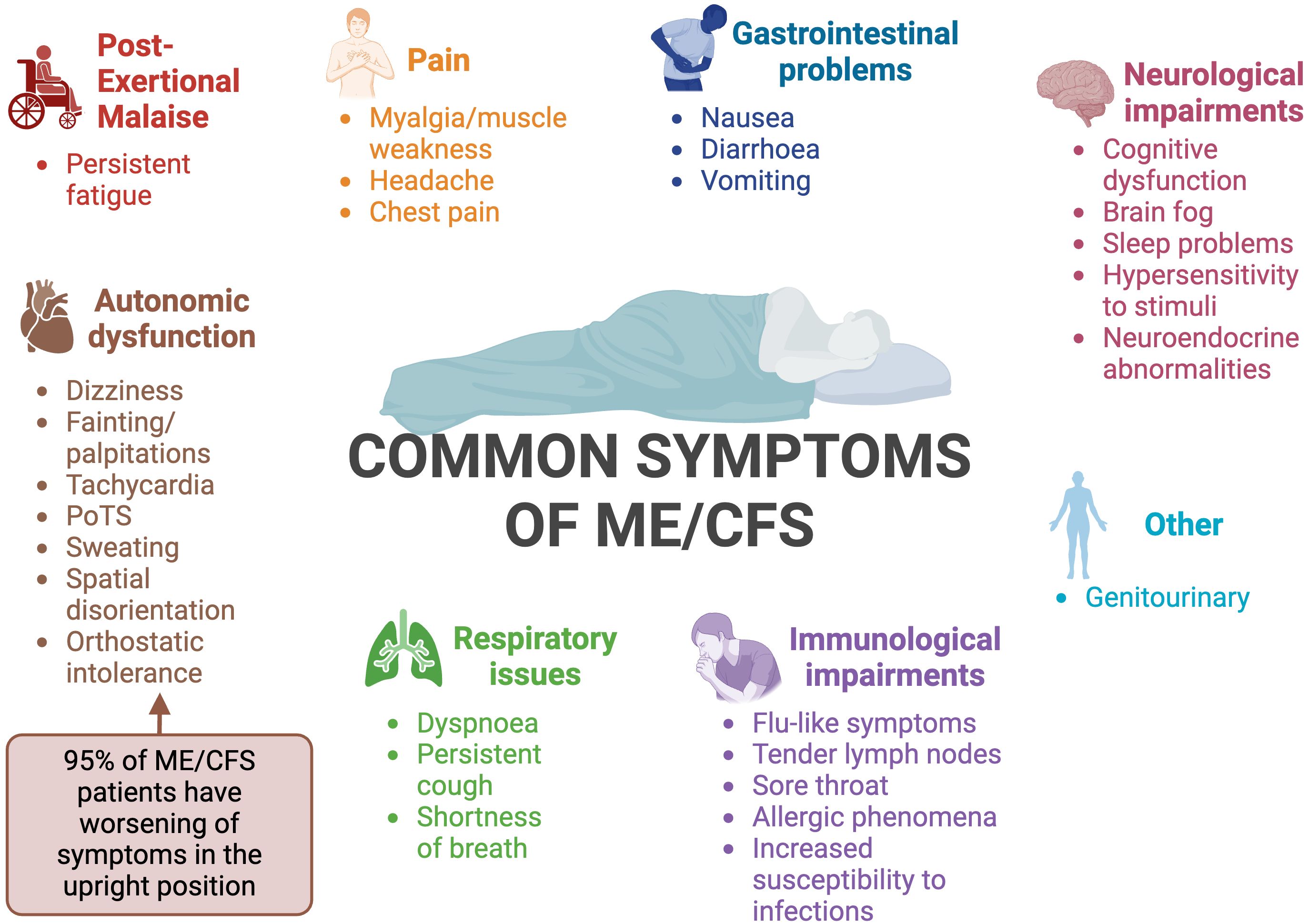Myalgic Encephalomyelitis

Myalgic Encephalomyelitis: Overview, Symptoms, Diagnosis, and Treatment
What is Myalgic Encephalomyelitis?
Myalgic Encephalomyelitis (ME), also known as Chronic Fatigue Syndrome (CFS), is a complex, chronic disease characterized by extreme fatigue that is not improved by rest and worsens with physical or mental activity. The exact cause of ME is unknown, but it is thought to involve immune, neurological, and metabolic dysfunction, often triggered by infections or other stressors. This debilitating condition affects multiple systems in the body and significantly impairs quality of life.
Stages and Symptoms
ME varies widely in presentation and severity, but common symptoms include:
Early Stage
Onset: Symptoms often develop suddenly after an infection or other trigger.
Symptoms: Profound fatigue lasting more than six months, unrefreshing sleep, muscle and joint pain, headaches, and difficulties with concentration and memory (“brain fog“).
Advanced Stage
Onset: Symptoms persist or worsen over time without effective management.
Symptoms:
- Post-exertional malaise (PEM), a severe worsening of symptoms following physical or mental exertion.
- Orthostatic intolerance, where standing or sitting upright causes dizziness or fainting.
- Sleep disturbances and night sweats.
- Sensory sensitivities such as light, sound, or chemical sensitivities.
- Psychological symptoms including anxiety and depression.
Complications
Severe ME can lead to significant disability with loss of employment and social isolation.
Diagnosis
Diagnosis is primarily clinical and based on symptom criteria due to the lack of a definitive lab test. It typically involves:
- Detailed medical history and physical examination.
- Exclusion of other conditions that can mimic ME, such as thyroid disorders, depression, or sleep apnea.
- Use of established diagnostic criteria such as the Canadian Consensus Criteria or the Institute of Medicine criteria.
- Functional assessments to evaluate the impact on daily activities and cognitive function.
Treatment
There is no cure for ME, and treatment focuses on symptom management and improving quality of life:
- Pacing, which involves balancing activity and rest to avoid PEM.
- Medications to alleviate pain, sleep disturbances, and orthostatic symptoms.
- Cognitive behavioral therapy (CBT) and graded exercise therapy (GET) are controversial and should be tailored individually.
- Supportive therapies including nutritional support, counseling, and management of coexisting conditions.
Prevention
Because the exact causes are unknown, prevention is challenging, but early recognition and careful management of symptoms can improve long-term outcomes.
Key Points
- Myalgic Encephalomyelitis is a chronic, multisystem disorder marked by debilitating fatigue and other neurological, immunological, and autonomic symptoms.
- It often follows infections or other triggers and impacts quality of life severely.
- Diagnosis is clinical, based on symptom criteria and exclusion of other diseases.
- Treatment is supportive and individualized, focusing on symptom relief and activity management.
- Early recognition and personalized care are essential for improving patient outcomes.
Consult with Our Team of Experts Now!
If experiencing symptoms consistent with ME or chronic unexplained fatigue, consult with our expert team for comprehensive assessment and personalized management.
References:
- Institute of Medicine. Beyond Myalgic Encephalomyelitis/Chronic Fatigue Syndrome: Redefining an Illness. 2015. doi:10.17226/19012. https://doi.org/10.17226/19012
- Mayo Clinic. Chronic Fatigue Syndrome. 2024. Available at: https://www.mayoclinic.org/diseases-conditions/chronic-fatigue-syndrome/symptoms-causes/syc-20360490
- Centers for Disease Control and Prevention (CDC). Myalgic Encephalomyelitis/Chronic Fatigue Syndrome. 2023. Available at: https://www.cdc.gov/me-cfs/hcp/clinical-overview/index.html
- National Institutes of Health. ME/CFS Overview. 2025. Available at: https://www.ninds.nih.gov/health-information/disorders/myalgic-encephalomyelitis-chronic-fatigue-syndrome















